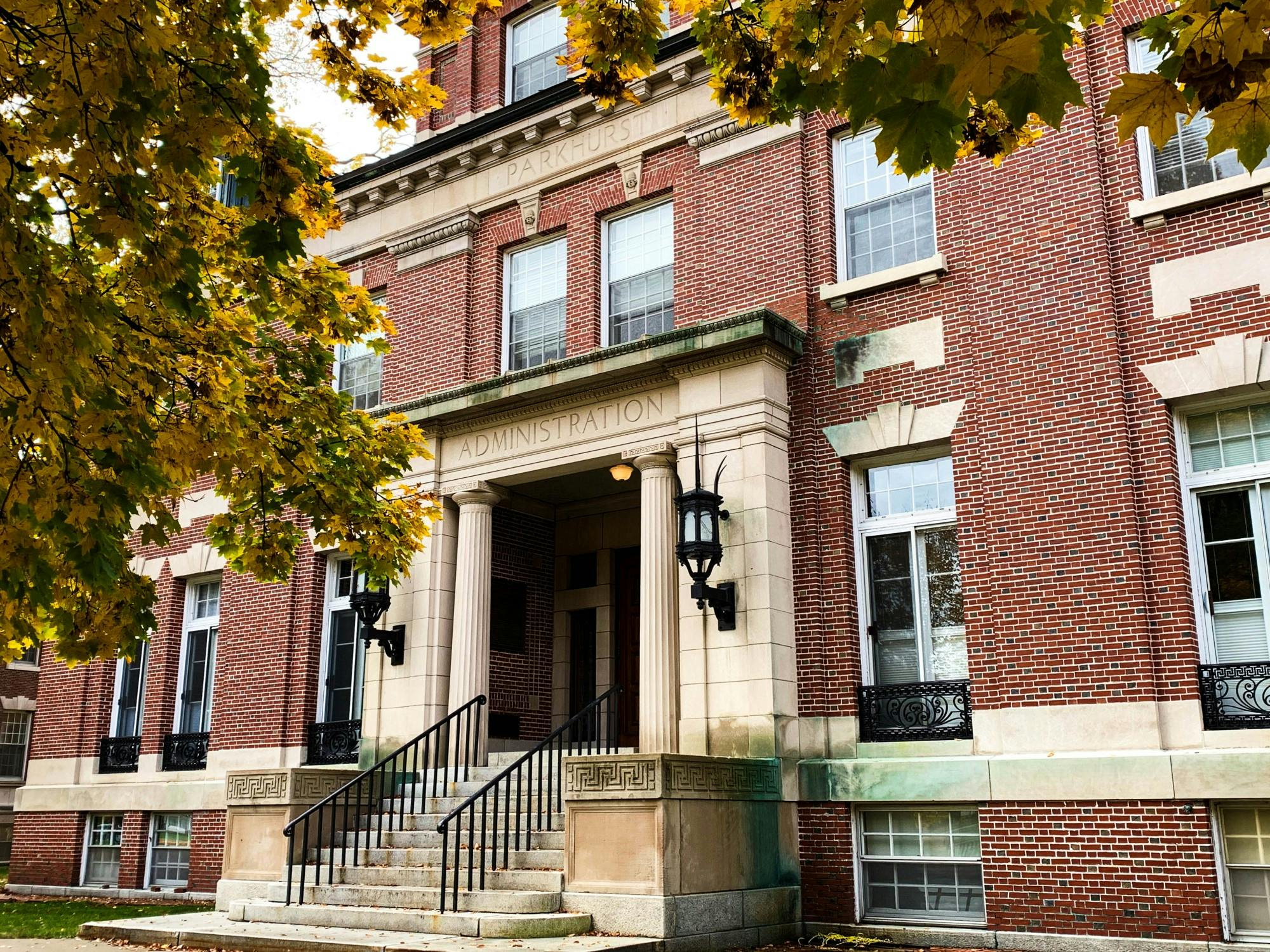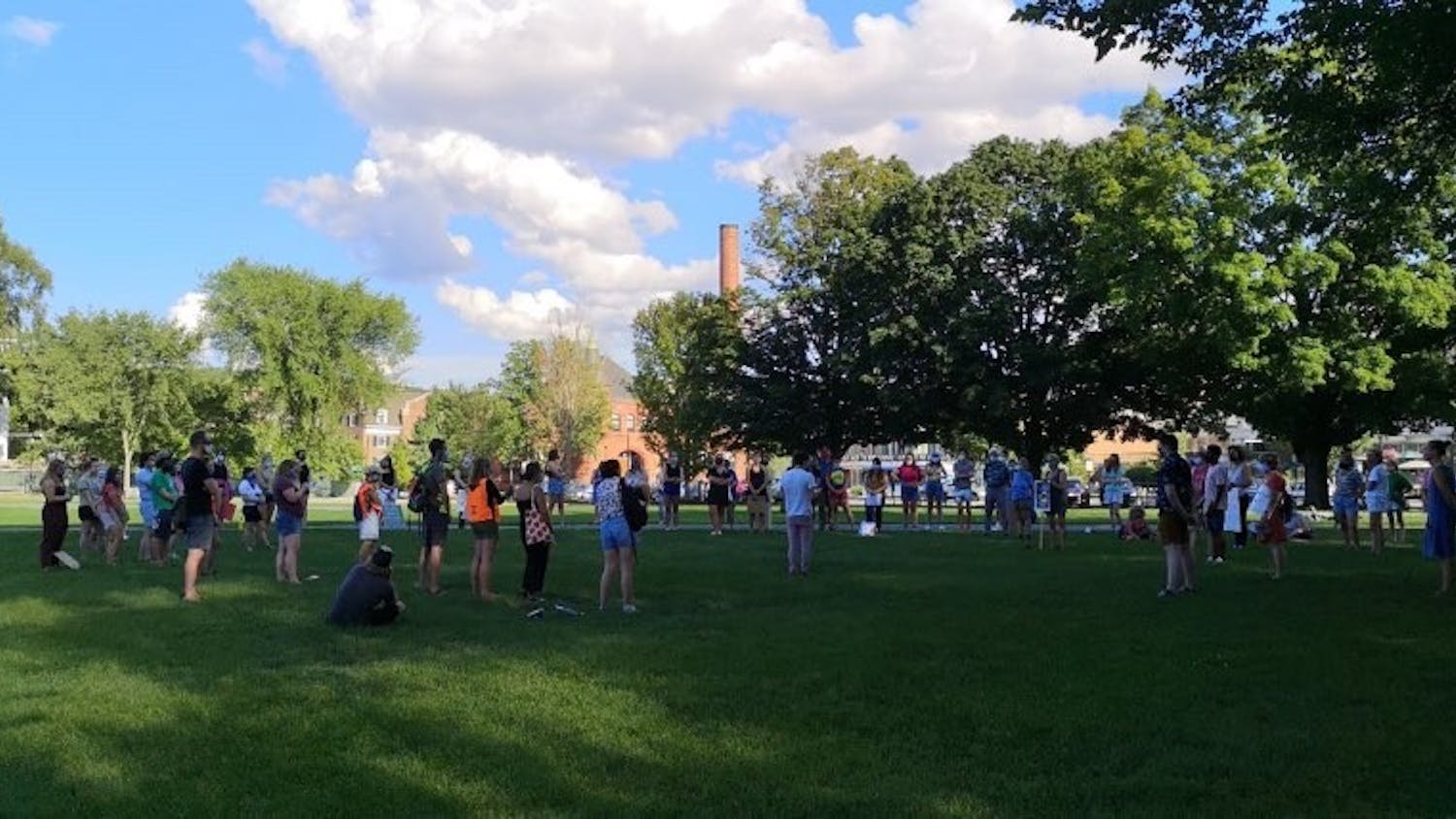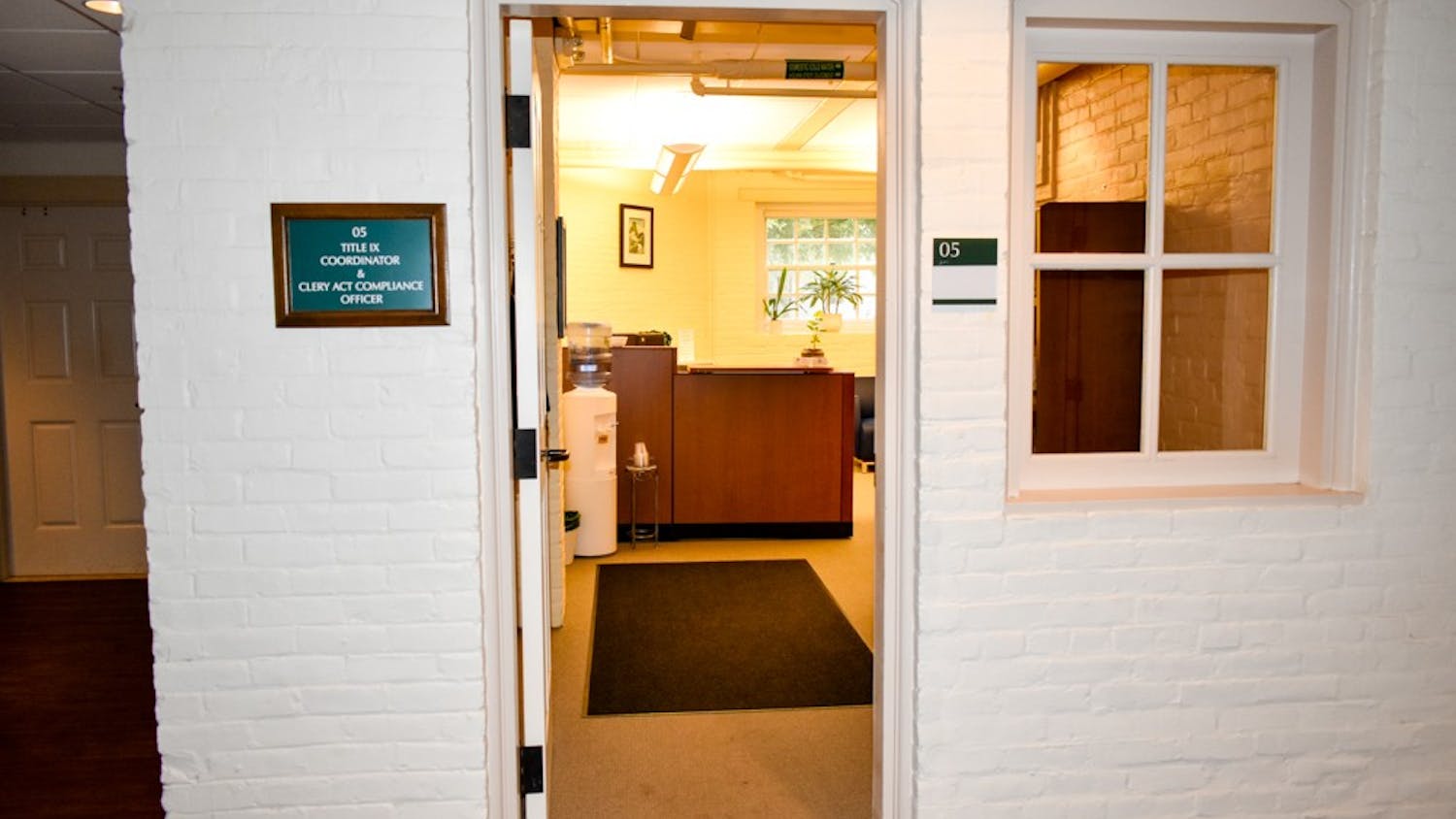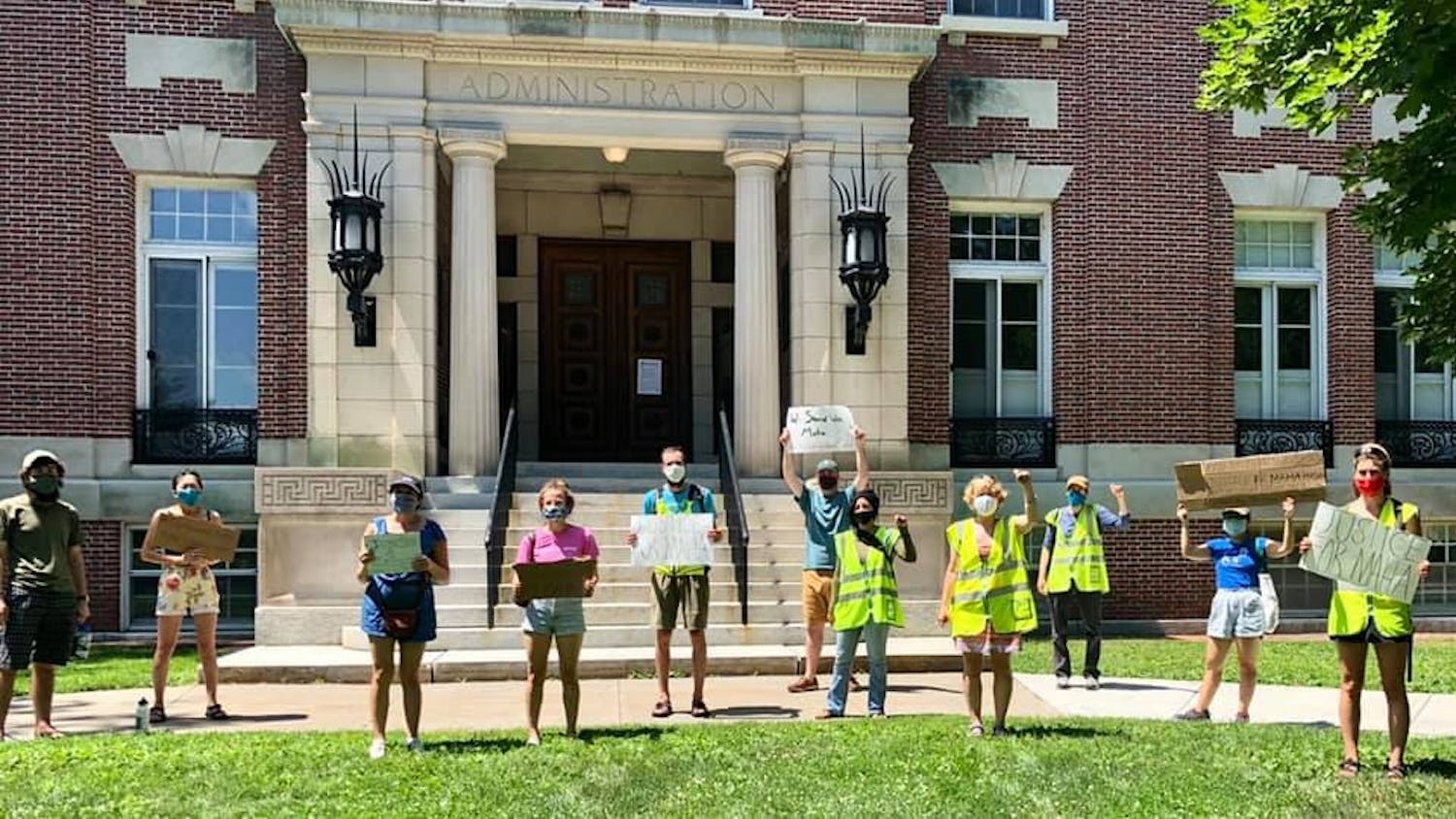This article is featured in the 2020 Fall special issue.
As an unknown number of students continue to be sent home for violating the College’s COVID-19 policies, the spotlight on Dartmouth’s judicial system has burned particularly bright. Since the College was founded, the policies and procedures of this system have undergone dramatic changes.
Disciplinary action through the years
Originally, Dartmouth’s founder Eleazar Wheelock served as the College’s sole judicial authority, adjudicating on any and all rule infractions, according to College archivist Peter Carini. Wheelock typically expelled offending students, only allowing readmittance to Dartmouth if they chose to “beg on one knee” and “confess to their sins,” he said.
Under administrations following Wheelock, faculty came to play a role in the disciplinary process, but the tradition of expulsion with the possibility for reinstatement continued through College President Nathan Lord’s tenure, which ended in 1863. Many expelled students were never readmitted and Carini said that as a result, the attrition rate for some years stood around 50%.
“If a whole bunch of students did something terrible, which they did a lot in those days, then they would all get kicked out and the class would come and beg for their readmittance, and then the administration would use it as an opportunity to get them to agree never to do ‘x’ again,” Carini said. “For instance, [they would promise not to] fire a cannon next to Dartmouth Hall and smash all the windows, which is something that actually happened.”
Following Lord’s administration, students were no longer uniformly expelled for breaking rules, but the College still had no formal review process for years to come. College records from 1897 indicate that College President William Jewett Tucker created the “Committee of Administration,” an all-faculty committee that reviewed infractions and effectively started Dartmouth’s formal judicial system. Carini explained that Tucker’s mission had been to “make Dartmouth a real college,” adopting the modern traditions and policies of most other colleges and universities as opposed to the College’s antiquated approach to governance.
The judicial system today is far more complex. According to Katharine Strong, director of the Office of Community Standards and Accountability, the CSA first reviews a report and determines whether a reported student violated the Standards of Conduct. Cases that call for potentially severe disciplinary action — specifically, a student’s suspension or expulsion — are either heard by the Committee on Standards or the Organizational Adjudication Committee, depending on whether the offending party is an individual or a student organization. Less severe cases are heard by an administrative hearing officer.
Dartmouth’s Standards of Conduct stipulate that “certain types of misbehavior will result in temporary or, where appropriate, permanent revocation of membership” in the College community. There are nine standards listed — including the College’s Hazing Policy, Sexual and Gender-Based Misconduct Policy, Alcohol Policy and Academic Honesty Principle.
Strong wrote in an email interview that there are exemption or immunity policies in instances of Title IX and hazing violations — a student reporting sexual misconduct or hazing, for instance, will not face disciplinary action by the College for ingesting alcohol or drugs. This does not mean, however, that the reporting party will not be charged by local authorities.
Since COVID-19, the “Community Expectations” agreement — a mandatory contract signed by all on- and off-campus students that requires adherence to the College’s quarantine and mandatory testing policies — has been strictly enforced. Unlike in the usual disciplinary process, accused students are “handled expeditiously” by the Dean of the College Kathryn Lively or her designee, with no appeals process. As reported by The Dartmouth, an undisclosed number of students have been sent home this fall, and some students have protested this process as unjustified.
In an Oct. 20 email from the Student and Presidential Committee on Sexual Assault, undergraduate students were notified of the Title IX exception to the Community Expectations agreement, which grants amnesty to students reporting sexual misconduct who may have violated COVID-19 policies. Although a reporting student would not face disciplinary action, the College still reserves the right to “take appropriate action to mitigate public health risks,” according to the email.
Alcohol violations become focus of judicial reform
While the on-campus judicial presence has shifted significantly since the pandemic, considerable changes to campus culture have previously taken place as a result of policy amendments. In 2015, as part of the Moving Dartmouth Forward initiative, the College instituted a hard alcohol ban, prohibiting the possession, consumption and distribution of alcohol above 30 proof, Strong wrote.
The “likely conduct response” to owning or drinking hard alcohol is merely a warning, but for any subsequent violation, an offending party will be suspended for an increasing number of terms. For those providing alcohol to others, there is no warning but rather immediate suspension from campus.
Several fraternities and sororities have faced repercussions for serving hard alcohol since the implementation of the ban — just last year, Zeta Psi fraternity was suspended for the summer and fall terms, and Alpha Phi sorority was suspended for the fall.
Before the ban, there was no formally recognized distinction between the College’s beer and wine policy and its hard alcohol policy — several infractions would ultimately lead to College probation, a sanction that limits on-campus involvement but does not involve the removal of a student from campus.
With such severe punishments, many worried the hard alcohol ban inadvertently deterred students from seeking out emergency medical attention — a conundrum that the “Good Samaritan” policy, implemented in 2017, sought to overcome. Strong explained that the policy protects students who need Safety and Security’s emergency assistance from disciplinary action by the College.
The policy is put to use fairly often. From 2016 to 2019, there have been 352 “Good Sam” calls to Safety and Security, according to data from the Student Wellness Center. However, getting “Good Sammed” does not shield students from other repercussions. Students are expected to complete BASICS training, an alcohol-use education program, and may incur a hefty fine.
Although the College’s judicial process is separate from local and federal authorities, students can still face criminal charges for violations of College policy if that policy overlaps with the law. According to the College’s 2019 annual Clery report, which discloses all crimes that were committed on or off campus, the vast majority of student crime was related to alcohol: Over 250 students from 2016 to 2018 received a disciplinary referral for liquor law violations, and nearly 40 were arrested each year.
The 2020 Safety and Security and Title IX annual reports are normally due on Oct. 1, but due to the pandemic, the deadline has been extended to the end of 2020. The Clery Act requires that the College release daily crime logs as well, which can be requested for viewing in person at the Safety and Security building. Clery Act compliance officer Grace Alden said that around a couple crimes are added to the logs each day, and are most commonly graffiti, harassment and public intoxication.
Confronting sexual misconduct past and present
While alcohol-related infractions are common, Dartmouth also has a long-running history of sexual misconduct on campus. A high-profile 2018 class action lawsuit alleged that the College turned a blind eye to over 16 years of sexual harassment by three former professors in the psychological and brain sciences department — an incident that some argued served as a microcosm of Dartmouth’s impassive campus culture surrounding sexual misconduct. In the 2018-19 school year alone, there were 228 people who interacted with the Title IX office and 170 formal reports, according to the Title IX office’s annual report.
Gabi Cooper ’21, outreach chair for the Student and Presidential Committee on Sexual Assault, said that the process of overhauling Dartmouth’s problematic culture will be gradual.
“When you are working on changing these really big cultural issues, like when you’re trying to enact a cultural shift, it takes time, so I don’t think that I’ll see any noticeable change in my Dartmouth lifetime as a senior,” Cooper said. “When you have continued incidents with professors incorrectly using their power and enacting violence and causing harm in the classroom like we saw … with the PBS lawsuit — unless an example is made of that and the College really comes out in those incidents and says we stand with survivors, I don’t think the message is going to come across to students that this is a place that doesn’t tolerate sexual violence.”
Once brought up to the Title IX office, any reported sexual misconduct is resolved by the Process for Resolving Complaints against Students pursuant to the sexual misconduct policy. According to Title IX coordinator Kristi Clemens, complainants may resolve any reported misconduct informally or formally — in other words, informal protective or supportive measures, like a “no contact order,” or a formal investigation.
Clemens clarified that sometimes a formal report is found not to be prohibited conduct — with 49 of the 170 reports falling under this description — if, for instance, the incident occurred prior to matriculation or was “uncomfortable or harassment, but maybe not sexual harassment,” in which case the report would be referred back to the CSA.
According to Cooper, the Title IX office’s purview is limited by federal regulations, which underwent major change following the appointment of U.S. Department of Education Secretary Betsy DeVos. Cooper said that DeVos narrowed the definition of sexual harassment and assault, limiting the Title IX office’s ability to investigate reported conduct, and implemented an “unheard of” live hearing component. In that sense, Cooper said, the College’s system for resolving reported conduct is unfair, but she said Dartmouth’s Title IX office tries its best to support victims despite the limitations.
“It’s no fault of the Title IX office itself,” she said. “It’s the fault of Title IX as it exists on a federal level. People in the Dartmouth Title IX office are heartbroken about [DeVos’] new regulations as well, since a lot of what they can do is circumscribed in this federal framework.”
Even in the event the conduct was prohibited, no resolution is possible in some circumstances, like if the reported student has already graduated. Non-resolution is not uncommon — 34 of the 121 incidents found to be prohibited conduct during the 2018-19 school year had no possible resolution.
Clemens emphasized that the Title IX office does not say “see you later,” to students who find themselves in either of these scenarios.
“We work with that person to say, you know, you’re reporting this to us, and this has clearly impacted you and unfortunately it doesn’t fall within our policy,” she said. “But let’s talk about other ways that we can support you and get some sort of remedy for this situation that has clearly impacted you.”
The Title IX office is a private College resource, meaning it is legally bound to share a disclosure of sexual misconduct with other individuals on a need-to-know basis. This does not mean, however, that a student who meets with the Title IX office will be forced to pursue any action, according to Clemens.
If a student discloses an incident directly to the office or to another on-campus private resource, Clemens said she is obligated to reach out to the student with resources but will not follow up if the student does not respond. Confidential resources — including the Counseling Center and Tucker Center — may not share information without a student’s express consent.
Since the transition to remote learning last spring, Clemens said the office has seen “the most [active investigations] since it was established,” with, at one point, the office conducting roughly 12 active investigations. She clarified that most of the reported conduct happened prior to the pandemic — and that a lag between an incident occurring and being reported was common — but the volume of requests for a formal investigation was nonetheless “surprising.” None of the reports detailed conduct that had occurred since students returned to campus this fall.
“Sometimes I hear from students that they’re nervous about engaging in a formal resolution process because they don’t want to see that person, and they don’t want to see those witnesses and they don’t want to have those awkward moments on campus that make them really uncomfortable and interfere with their education,” she said. “I think that having everybody off campus provided mental space that made people feel like they could engage in this process.”
The extra space is particularly meaningful at Dartmouth, she added, since its small size often makes it difficult for students to avoid unwanted interactions.
“I’m not sure our Ivy-Plus peers have experienced this, as well,” she added. “I think this is a uniquely Dartmouth moment.”




